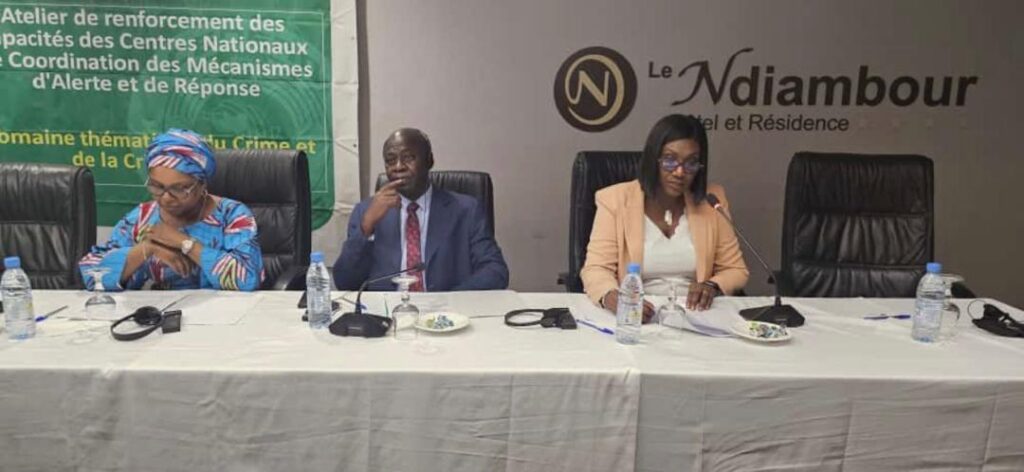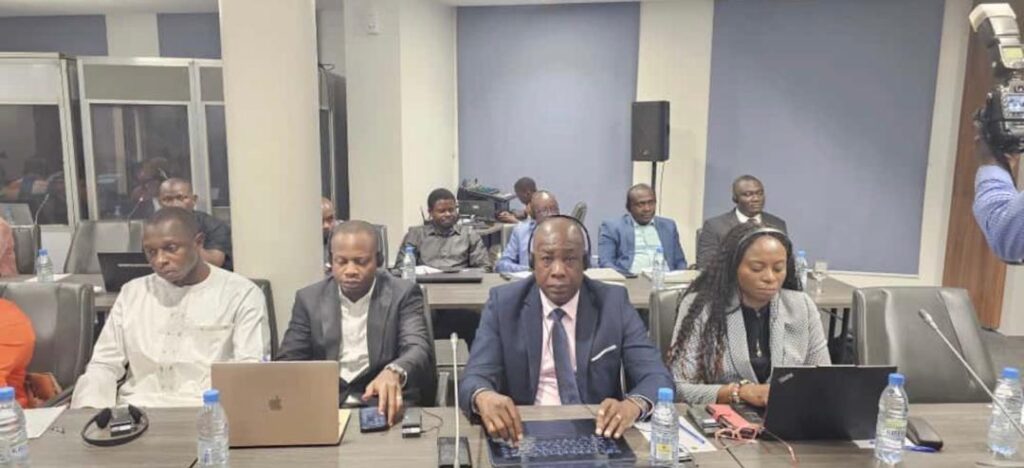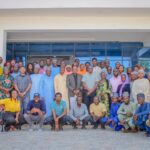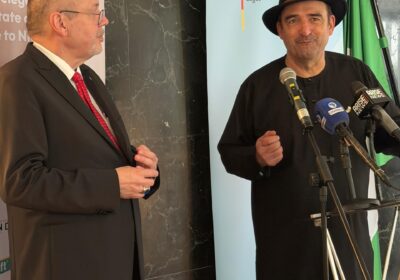Transnational Crime: ECOWAS Hosts Workshop on Role of Artificial Intelligence in Combating Regional Threat to Peace.
By Raymond Enoch.
In a major step toward modernizing its regional security strategy, the Economic Community of West African States (ECOWAS) has convened a high-level workshop in Dakar focused on deploying Artificial Intelligence (AI) to combat the growing threat of transnational crime across West Africa.

Organized by the ECOWAS Commission’s Early Warning Directorate (EWD), the Human Security Thematic Workshop on Crime and Criminality, held from October 21 to 24, 2025, brings together crime experts, security analysts, and representatives of national and regional agencies to explore the role of AI in crime prevention and early warning systems.
The workshop addresses urgent threats including trafficking in persons, illicit drug and arms trade, sexual and gender-based violence, and other forms of organized crime that undermine peace, security, and economic development in Member States.

Ambassador Zelma Nobre FASSINOU, ECOWAS Resident Representative in Senegal, speaking on behalf of H.E. Madam Damtien L. TCHINTCHIBIDJA, Vice President of the ECOWAS Commission, said criminal actors are adapting quickly to the region’s fragile context — exploiting conflicts, political instability, and economic disparity. She noted that porous borders and sophisticated criminal networks have made traditional law enforcement responses increasingly inadequate. “That is why AI must now play a central role in strengthening our collective response,” she stated.
Recent ECOWAS assessments show illicit economies growing in nearly every country in the region. These criminal networks operate seamlessly across borders, often outpacing the traditional response mechanisms and complicating security and governance.
The workshop features a nine-module curriculum covering crime and conflict linkages, mapping organized crime typologies, geospatial crime analysis, the use of AI in early warning systems, and strengthening the capacities of National Centres for Coordination and Response. The program emphasizes hands-on exercises, simulations, and group activities to build practical expertise.
Mr. Mamadou Moustapha SECK, Deputy Coordinator of the ECOWAS National Office, representing Mr. Babacar BA, Director of African Integration and Pan-Africanism, highlighted Senegal’s commitment to peace and security in the region. He confirmed that Senegal is on track to inaugurate its own National Centre for Early Warning and Response, reinforcing national ownership in regional mechanisms.
Participants at the workshop include representatives from National Centres for Early Warning and Response Mechanisms (NCCRM), the Inter-Governmental Action Group against Money Laundering in West Africa (GIABA), the Institute for Security Studies (ISS), the West Africa Network for Peacebuilding (WANEP), as well as other ECOWAS departments and technical partners.
The initiative reflects a strategic shift by ECOWAS from reactive security responses to data-driven, intelligence-led approaches. As the region grapples with complex and transnational security threats, integrating AI into early warning and crime response systems is expected to improve real-time analysis, promote coordination, and reduce the lag between threat detection and response.
By embracing innovation, ECOWAS aims to build a resilient and responsive security architecture that safeguards its Member States and citizens, and promotes peace and sustainable development throughout the region.








